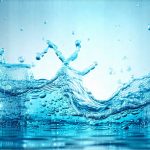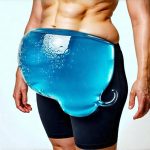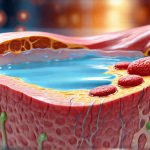The simple act of staying hydrated is foundational to overall health, yet often overlooked in its nuance. We frequently focus on how much water we drink, but less attention is given to the source of our fluids and how different beverages impact hydration levels differently. While seemingly innocuous, certain drinks – even those perceived as refreshing – can actively contribute to dehydration, ultimately leading to changes in stool consistency, specifically increased hardness and constipation. This isn’t always about a lack of water intake; it’s often about an imbalance created by what we are drinking. Understanding the mechanisms behind this phenomenon is crucial for maintaining digestive regularity and overall well-being.
Many beverages contain compounds that exert a diuretic effect – meaning they promote increased urination – or require the body to use more water to process them, effectively drawing fluids away from other essential functions including digestion. The impact on stool hardness isn’t immediate; it’s usually a gradual process where consistent consumption of these dehydrating drinks reduces the water content in the large intestine, making stools harder to pass and potentially leading to discomfort or even constipation. This is particularly problematic for individuals already susceptible to dehydration due to lifestyle factors like exercise, climate, or underlying health conditions. The goal isn’t necessarily eliminating these beverages entirely, but rather being mindful of their impact and proactively balancing them with sufficient water intake.
The Diuretic Effect & Digestive Impact
Diuretics are substances that encourage the kidneys to excrete more water. While sometimes medically necessary for managing certain health conditions, many common beverages naturally possess diuretic properties. Caffeine, a stimulant found in coffee, tea, and some sodas, is a prime example. It doesn’t directly dehydrate you – your body still utilizes the fluid – but it increases kidney function leading to more frequent urination and potentially reducing the amount of water available for digestive processes. Similarly, alcohol is a potent diuretic; its consumption leads to significant fluid loss through increased urine production, often exacerbating dehydration even after moderate intake. The effect isn’t simply about losing liquid volume; it also impacts electrolyte balance which further disrupts normal bodily functions including peristalsis – the muscular contractions that move waste through your digestive system.
Beyond caffeine and alcohol, certain herbal teas, while generally healthy, can also have mild diuretic effects depending on their composition. Even sugary drinks contribute to this imbalance. High sugar concentrations require water for metabolism, effectively pulling fluid from other areas of the body, including the colon. This concentrated sugar content also alters the osmotic pressure within the digestive system, potentially drawing water into the small intestine and leaving less available for softening stool in the large intestine. The result is a vicious cycle – increased urination leading to reduced colonic hydration, then harder stools requiring more effort to pass, which can further exacerbate dehydration if fluid intake isn’t adequately adjusted. It’s important to rule out other causes of discomfort like what you will learn about can frequent nausea be caused by acid reflux.
The digestive system relies heavily on adequate hydration to function optimally. Water softens stool, making it easier to move through the intestines. When dehydrated, the large intestine absorbs more water from the waste material, resulting in harder, drier stools that are difficult to expel. Chronic dehydration caused by consistently consuming diuretic beverages can lead to chronic constipation and potentially other digestive issues over time. It is important to note this isn’t about avoiding these drinks entirely; it’s about being aware of their impact and counteracting them with sufficient plain water consumption. If you suspect hidden gut issues revealed by advanced scan layers, seek medical advice.
Understanding Osmotic Pressure & Stool Consistency
Osmotic pressure plays a critical role in determining stool consistency. This refers to the concentration of dissolved particles (like sugars, salts, and other solutes) in a solution – in this case, within the digestive system. When there’s a high concentration of these particles, water is drawn into that area from surrounding tissues to balance it out. Conversely, a lower concentration means water will move out. Sugary beverages, for example, introduce a large number of dissolved sugar molecules into the small intestine. This draws water into the small intestine to dilute the sugar, leaving less water available in the large intestine to soften stool.
This imbalance can be particularly pronounced in individuals sensitive to certain sugars or artificial sweeteners found in many beverages. Some people experience osmotic diarrhea with excessive sugar intake while others may simply find their stools become harder due to dehydration. The impact is also influenced by fiber intake; a diet low in fiber exacerbates the problem, as fiber naturally absorbs water and adds bulk to stool, helping to counteract the dehydrating effects of certain drinks. A combination of high-sugar beverage consumption and low-fiber diet creates a perfect storm for hard stools and constipation. You can learn more about can bloating be caused by blood sugar fluctuations, which may contribute to digestive discomfort.
The Role of Electrolytes in Hydration & Digestion
Electrolytes – sodium, potassium, magnesium, and chloride – are essential minerals that play a vital role in maintaining fluid balance within the body. Dehydrating beverages not only reduce overall water volume but can also disrupt electrolyte balance. Diuretics, for instance, cause increased excretion of electrolytes through urine. This disruption impacts nerve and muscle function, including the contractions necessary for peristalsis. Without adequate electrolytes, the digestive system struggles to move waste efficiently, further contributing to constipation and hard stools.
Restoring electrolyte balance often requires more than just drinking water; it necessitates replenishing lost minerals. Consuming foods rich in electrolytes – bananas (potassium), leafy greens (magnesium), and salted snacks (sodium) in moderation – can help counteract the effects of dehydrating beverages. Sports drinks, while containing electrolytes, also often contain high levels of sugar which can negate some of their benefits; therefore, they should be consumed judiciously or avoided altogether. Maintaining a balanced diet alongside adequate water intake is crucial for supporting optimal digestive function and preventing dehydration-induced stool hardness. Understanding can acid reflux be caused by a lack of stomach acid can also help pinpoint the source of discomfort.
Counteracting Dehydration: Practical Strategies
Addressing the issue of dehydrating beverages isn’t about complete abstinence but rather mindful consumption and proactive hydration strategies. Here’s a step-by-step approach to mitigate their impact:
- Track Your Intake: Monitor how much coffee, tea, alcohol, or sugary drinks you consume daily. This awareness is the first step towards making informed choices.
- Balance with Water: For every cup of coffee or caffeinated tea, drink an additional glass of water. Similarly, for each alcoholic beverage, follow it up with at least 8 ounces of water.
- Prioritize Plain Water: Make plain water your primary source of hydration. Carry a reusable water bottle and sip on it throughout the day.
- Increase Fiber Intake: Incorporate fiber-rich foods – fruits, vegetables, whole grains, legumes – into your diet to add bulk to stool and improve digestive regularity.
- Electrolyte Replenishment: Consume electrolyte-rich foods or consider a low-sugar electrolyte beverage after significant fluid loss (e.g., exercise, excessive sweating).
- Listen to Your Body: Pay attention to signs of dehydration – thirst, dark urine, fatigue – and adjust your fluid intake accordingly.
If you experience throat discomfort, learn how to stop throat burning caused by acid reflux.
Ultimately, maintaining healthy stool consistency requires a holistic approach that considers both the quality and quantity of fluids consumed. By understanding how different beverages impact hydration levels and proactively implementing strategies to counteract their dehydrating effects, you can support optimal digestive function and overall well-being. Remember that individual needs vary; what works for one person may not work for another, so it’s important to find a hydration strategy that suits your lifestyle and body. Can gut issues be caused by pesticides is also worth considering as part of an overall wellness plan. Also, recognizing liver problems caused by high iron levels can influence digestive health.


















